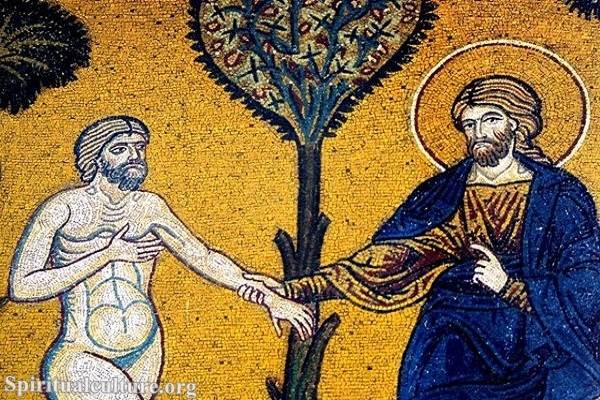Suffering. Injustice. Two words that weigh heavily on every human soul.
Why do the innocent suffer? Why do the wicked prosper? Where is God when tears fall without end, when violence silences the innocent, when justice is delayed or denied?
This is not a theoretical question for the Christian faith — it is a cry from the heart of humanity that echoes through Scripture, from the laments of Job to the cross of Christ.
In this article, Spiritual Culture invites you to enter the depths of the Christian response to suffering and injustice. Not as distant observers, but as fellow travelers on the road of pain and faith. Together, we will explore:
- How Christians understand the roots of suffering
- What Scripture teaches about enduring injustice
- How Jesus transforms our view of both pain and evil
- And what it means to hope, love, and act in the face of a hurting world
This is not a simplistic answer — but it is a profoundly hopeful one.
The World As It Is: The Reality of Suffering and Injustice
The Brokenness of Creation
Christianity does not shy away from the pain of the world. In fact, it begins with the truth that things are not as they were meant to be.
Genesis tells us that creation was originally “very good” (Genesis 1:31). But the entrance of sin into the world fractured that harmony. With it came suffering, death, and injustice — not because God desired it, but because human freedom was misused.
“Therefore, just as sin came into the world through one man, and death through sin, and so death spread to all men because all sinned.” — Romans 5:12
Suffering is not always the result of personal sin, but all suffering finds its roots in a fallen world. Injustice thrives where sin distorts love, truth, and power.
The Cry for Justice in the Human Heart
Across all cultures, there is a deep longing for justice. We are grieved by corruption, abuse, and oppression because we carry the image of a just God.
“He has shown you, O man, what is good; and what does the Lord require of you but to do justice, and to love mercy, and to walk humbly with your God?” — Micah 6:8
Our yearning for justice is not meaningless — it is a reflection of divine desire. Christianity teaches that this ache for fairness points to a moral order rooted in God Himself.
The God Who Suffers: Jesus and the Depth of Compassion
The Cross: Where God Enters Our Pain
At the center of Christianity is not a distant deity, but a suffering Savior.
Jesus Christ, fully God and fully man, entered a world of violence and oppression. He was falsely accused, beaten, mocked, and crucified — the innocent One suffering for the guilty.
“He was despised and rejected by men; a man of sorrows and acquainted with grief… Surely he has borne our griefs and carried our sorrows.” — Isaiah 53:3–4
On the cross, Jesus does not explain away suffering — He bears it. He joins us in our pain. He absorbs evil without retaliating. And in doing so, He redefines what victory looks like.
The Resurrection: Suffering Is Not the End
The story does not end at the cross. It bursts into light three days later with the resurrection.
This is the cornerstone of Christian hope — that death is defeated, injustice will not have the last word, and healing is coming.
“He will wipe away every tear from their eyes, and death shall be no more… for the former things have passed away.” — Revelation 21:4
Because Jesus rose, Christians believe that all suffering will one day be undone. The resurrection is God’s promise that even the worst evil can be redeemed.
Living in the In-Between: Faith in a Suffering World
Lament: A Holy Way to Grieve
Christians are not called to deny pain or put on a happy face. The Bible gives voice to deep sorrow through the language of lament.
The Psalms are full of cries like:
“How long, O Lord? Will you forget me forever?” — Psalm 13:1
Lament is not doubt — it is faith that refuses to let go. It is trusting God enough to bring Him our brokenness and demand His nearness.
Compassion: Responding with Love
Jesus calls His followers not only to believe, but to act. To feed the hungry, visit the sick, welcome the stranger, and defend the oppressed.
“Truly, I say to you, as you did it to one of the least of these my brothers, you did it to me.” — Matthew 25:40
In a world of injustice, Christians are called to embody Christ’s love. Not with apathy or anger, but with redemptive action.
Forgiveness: A Radical Witness
One of the most revolutionary Christian responses to injustice is forgiveness — not because evil should be excused, but because hate cannot heal.
“Love your enemies and pray for those who persecute you.” — Matthew 5:44
Forgiveness breaks the cycle of violence. It is the power to declare that even in suffering, we will not become what has hurt us.
Hope That Endures: The Christian View of Justice
Justice Delayed Is Not Justice Denied
One of the hardest truths Christians face is that justice often seems delayed. But Scripture assures us that God sees, God remembers, and God will act.
“Shall not the Judge of all the earth do what is just?” — Genesis 18:25
Final justice is not always found in this world — but it will come. The Christian hope is eschatological: it looks to the return of Christ, when every wrong will be made right.
The Judgment and Mercy of God
Christians believe in both the justice and mercy of God. He does not overlook evil — but He also offers grace to the repentant.
“Do not be overcome by evil, but overcome evil with good.” — Romans 12:21
This dual truth prevents despair. It means that every cry matters — and every person has the possibility of redemption.
What This Means for You
Reflect and Reimagine
Suffering and injustice are not abstract problems. They are personal, painful, and pressing. But the Christian response is neither passive resignation nor cynical rage.
It is faith that grieves honestly, loves boldly, acts justly, and hopes defiantly.
As Spiritual Culture, we invite you to reflect:
- Where have you encountered suffering — in your life or in the world?
- How might you bring that pain honestly before God in lament?
- What small act of justice or mercy can you offer today?
- Do you long for a hope stronger than despair?
The cross shows us that God is not far from suffering — He is in it.
The resurrection shows us that injustice will not win — life will.
And the Spirit gives us courage to live in love, even when the world is not yet healed.
You are not alone in your questions. And you are not powerless in the face of pain.
Let love be your response. Let hope be your protest. Let Christ be your strength.




Thank you for this article. I found it and this site by chance.
Your article brought me comfort as I feel wracked by loss due to injustices in my workplace during my younger years. Injustice that deserve redress that did not happen.
I also find comfort in the story of the phoenix in addition to the resurrection of Christ.We can rise from injustice and destruction more glorious than before, whether or not redress and justice does happen.